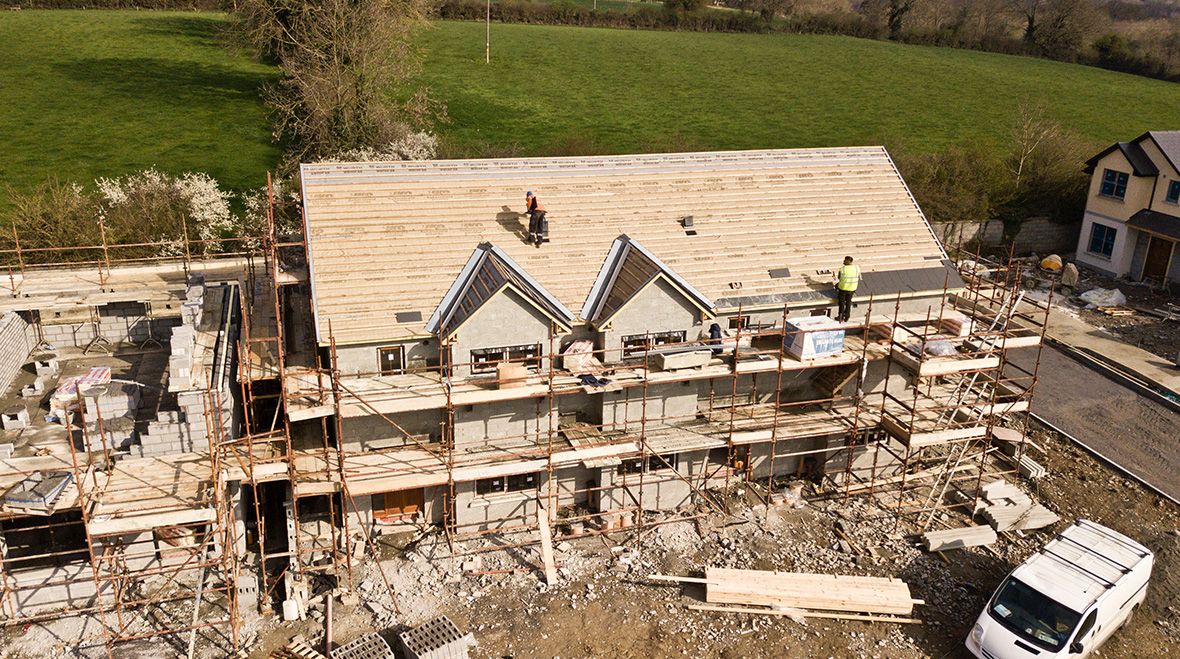
Following the government’s ruling to ban leasehold houses in Britain, the press, social media and local communities have erupted with stories about what this really means for leaseholders across the country. Whilst some of it may be true, much of the speculation surrounding this subject is at best, misunderstood, and at worst, completely fictitious. These rumours are confusing for everyone involved, so we have looked into matters a little more closely to give you the lowdown on what this really means for you.
What is leasehold?
Leasehold is one of two interests in property that exists in England and Wales. If you own a leasehold property you technically have a very long rental agreement. The rental agreement is typically for any amount of time from 99 to 999 years. In return for the property, you usually pay ground rent to the freeholder.
Usually, if you are a leaseholder, you are responsible for insuring, repairing and maintaining the internal parts of your property and the freeholder is responsible for insuring, repairing and maintaining the exterior and structure of the building in addition to any common parts, such as an internal stairwell, car park, bin store, cycle store etc. Whilst the freeholder is responsible for these areas, it will be the joint responsibility of all the leaseholders that enjoy these areas to pay towards them via a service charge.
There are also restrictions on what alterations can be made to most leasehold properties. For example, changing the outside appearance of the property including windows and doors usually requires the consent of the freeholder. Historically, the idea behind this was to maintain some uniformity in a block of flats as, of course, if everyone had a different colour front door and items hanging out of their windows, the overall value of the place would depreciate.
What is a leasehold house?
It is quite unusual for a house to be leasehold. That is because, none of the elements of a typical leasehold property, as set out above, usually exist for a house. For example, most houses are self-contained with their own private driveway and garden, with no communal areas, so there is no reason for a house to be leasehold.
Why is this a problem?
There are many reasons why it does not work for a house to be a leasehold property but ground rent is the number one issue. During the new build boom, before the recession, developers managed to creep in sneaky ground rent clauses to homeowners’ leases meaning that instead of the traditional ‘peppercorn rent’, developers were setting rents of £200 plus, which are then set to double every 10 years or so. This means properties are quickly becoming unaffordable for the average person, and a real risk to lenders, who are reluctant to lend on properties with such high rents.
The second problem for leasehold house owners is the need to obtain the freeholder's consent to alterations. House owners often look to extend, build a conservatory or an outhouse and do not expect to have to apply to a freeholder or pay fees for their consent to do so. Some people have reported fees of up to £2,500 for such consent.
Estate Charges
In addition to ground rent, most houses, leasehold or freehold, that are situated on a communal estate also have to pay an estate charge. The estate charge is supposed to maintain the communal areas, like the bin store, cycle store, communal gardens and so on, as set out above. However, it has recently been exposed that managing agents everywhere have been abusing their power and charging exorbitant fees for very little or even no maintenance. This is mainly due to the lack of regulation in this area.
Do these issues apply to flats too?
Yes and no. The ground rent scandal affects leaseholders nationwide as many flat leases also have doubling ground rents. However, the nature of a block of flats is very different from a standalone house. Owning a flat means you are part of a community that all jointly pays the freeholder for various services that you receive, such as lighting, electricity, gardening, cleaning and so on. Leasehold charges are heavily regulated by statue, so there are limitations on what can be charged for. It is also for the benefit of leaseholders that certain rules are contained in leases so that the residents of the flats can enjoy their properties without interruption. It is for this reason, lenders generally do not have an issue lending on a leasehold flat (subject to the ground rent provisions) as they are less of a security risk. Lenders are now very unlikely to lend on leasehold houses, making them very difficult to sell.
What can you do?
Well, it depends which bit you are not happy with and who is at fault as there are a number of issues here so it is important not to confuse them. With regard to escalating ground rents, claims are being filed daily against conveyancing solicitors for failing to advise unexpecting buyers about such onerous clauses. Likewise, claims are also being made against the original developers for grossly unfair contract conditions. Whilst legal action can be costly and time-consuming, if the claim is successful, you will usually be able to recover costs from the offending party and unfortunately, there is no other way of avoiding paying such costs.
If you are not happy with your estate charge or managing agent, it is pretty easy to change agent. Many residents believe they are tied into their existing agent but that is simply not the case. Most new-build estates were set up so there is a residents management company in place that is the immediate landlord of the block or development. Residents are, usually, members of this company and at least two of those members should become directors of that company. The role of the directors is to oversee the expenditure of the development, sign off the accounts and ensure nothing untoward is happening. Those same directors should call annual general meetings and consult with the other residents about the decisions they are making to keep all residents happy. The directors also have the power to terminate the contract with the existing agent and appoint a new one, should they be unhappy with their service of fees.
We hope this clarifies the current position but should you have any queries about this topic please do not hesitate to get in touch.


